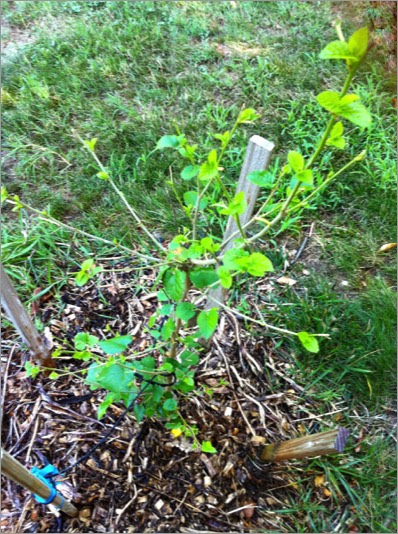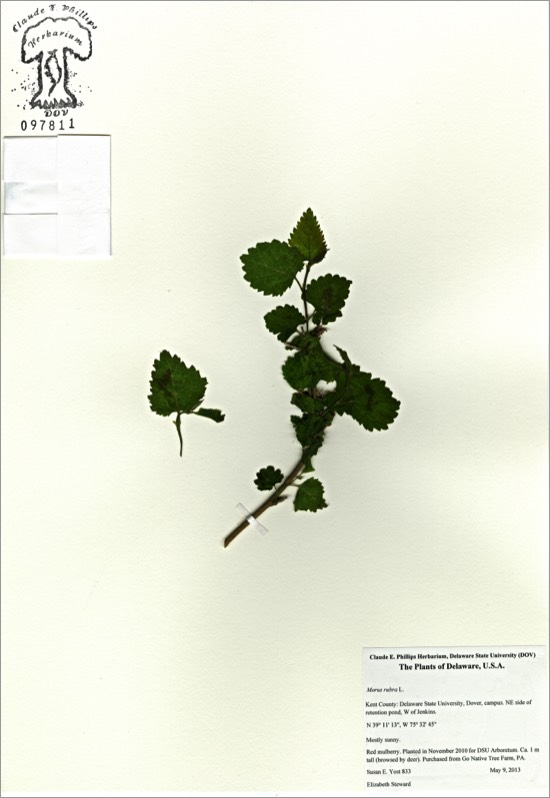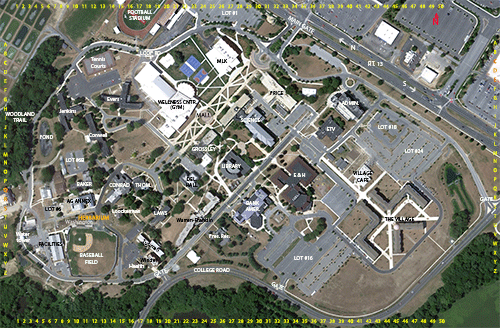Morus rubra

Morus rubra
RED MULBERRY
Moraceae
E. North America
Location: map coordinates J-7 (east of retention pond, west of Jenkins Hall), N 39°11'14'' W 75°32'46''
Planting history: planted November 2010. Source: Go Native Tree Farm, PA. (Dr. S. Yost, USDA NIFA Capacity Building Grant funds).
Description:
Native species, State Rank S3 (uncommon, but not of conservation concern, yet; typically only 21-50 known populations in Delaware)
RED MULBERRY
Moraceae
E. North America
Location: map coordinates J-7 (east of retention pond, west of Jenkins Hall), N 39°11'14'' W 75°32'46''
Planting history: planted November 2010. Source: Go Native Tree Farm, PA. (Dr. S. Yost, USDA NIFA Capacity Building Grant funds).
Description:
- small- to medium-sized deciduous tree
- etymology: Morus from the Latin name for M. nigra; rubra = red (fruits)
- leaf unlobed or 1- to 3-lobed; toothed; autumn foliage dull yellow. Leaf similar to white mulberry, but red mulberry is hairy beneath and sandpapery above
- fruit fleshy, multiple (develops from a cluster of tiny flowers); dark purple; ripens quickly; edible, but ripens quickly, doesn’t store well
- habitat: rich woods and edges
- much less common than the non-native white mulberry (Morus alba)
- the non-native white mulberry hybridizes with red mulberry, thus threatening red mulberry’s genetic viability
Native species, State Rank S3 (uncommon, but not of conservation concern, yet; typically only 21-50 known populations in Delaware)


HIT REFRESH TO START LOCATION GRAPHIC